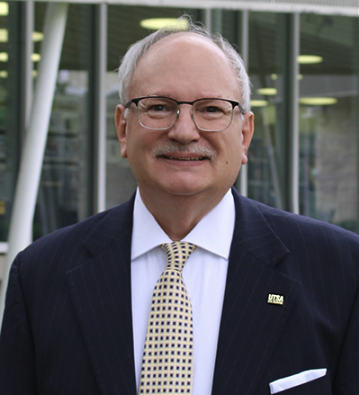Dr. Gerald Juhnke is a Professor and the Interim Chair of The University of Texas at San Antonio’s (UTSA’s) Counseling Department. He established his first independent practice in 1986 with a board-licensed psychiatrist and a clinical social worker. He has provided counseling and clinical supervision services across a wide range of settings, including large community mental health agencies, correctional institutions, and private practices in Michigan, North Carolina, and Texas.
From 1992 to 2004, Dr. Juhnke served as a Professor at The University of North Carolina at Greensboro (UNCG), where he also directed the Nicholas A. Vacc Counseling Department Clinic. There he created and led the Substance Information Program, which assessed and counseled adjudicated college students presenting with Substance Use Disorders. Later he created an additional Substance Use assessment program for students and community members whose driving privileges had been revoked due to DUI charges and wanted to petition the State of North Carolina to regain driving privileges. Master’s and Educational Specialist counseling students provided direct assessment and counseling services, and doctoral counseling students provided immediate oversight and clinical supervision under Dr. Juhnke’s clinical supervision and tutelage.

At the University of Texas at San Antonio (UTSA), Dr. Juhnke held several leadership roles, including founding Director of the Counseling Department’s Doctoral Program (2004–2016), Associate Dean of the Graduate School, Department Interim Chair, and Chair of the UTSA Faculty Grievance Committee. He and his master’s and doctoral counseling students also provided initial psychosocial assessments and individual, family, and group counseling services to Hurricane Katrina survivors arriving at the former Kelly Air Force Base, as well as assessment and counseling services and clinical supervision and consultation to area schools post suicide events.
He is a former President of two American Counseling Association (ACA) divisions: the Association for Assessment and Research in Counseling and the International Association for Addictions and Offender Counseling. He is also an ACA Fellow and a Clinical Fellow of the American Association for Marriage and Family Therapy.
Dr. Juhnke has made significant contributions to counseling scholarship and publishing. He chaired the ACA’s Council of Journal Editors, overseeing 16 journals and all ACA publications. He served as Editor-in-Chief of the Journal of Addictions and Offender Counseling and Associate Editor for the Journal of Counseling and Development (2012-2018). Juhnke authored 14 textbooks on topics such as suicide, bullying and school violence, addictions, family counseling, and assessment. Two additional books are scheduled for publication—one in December 2025 and a second in February 2026. He has published over authored over100 refereed journal articles and assessment instruments, including the widely used Life Balance Inventory, which evaluates over 15 life domains and benchmarks testee responses against both general and clinical populations. Dr. Juhnke served as an external reviewer on more than 60 tenure and promotion reviews at universities such as Vanderbilt University, the College of William and Mary, Wake Forest University, University of Georgia, The Ohio State University, and the University of Tennessee at Knoxville.
Before entering the counseling profession, Dr. Juhnke trained as a chef at the Culinary Institute of America in Hyde Park, NY, owned two restaurants and a large catering business, worked as a scuba diving instructor and dive guide in the Florida Keys, and enjoyed playing trumpet and keyboard in a jazz band.


